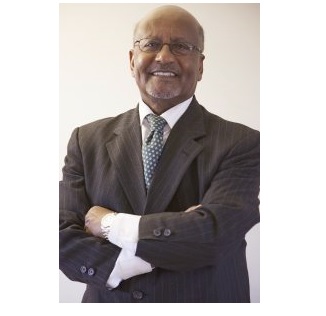Demands of African Nations For Permanent Seat at UNSC Is “Plausible”: Morgan State University Scholar - ENA English
Demands of African Nations For Permanent Seat at UNSC Is “Plausible”: Morgan State University Scholar

Addis Ababa December 15/2021/ENA/ The call by African countries to have a permanent seat at the United Nations Security Council (UNSC) is “plausible,” Morgan State University Political Science and International Relations, Professor Getachew Metaferia said.
Morgan State University Political Science and International Relations, Professor Getachew Metaferia told ENA that currently there is a voice coming from the leaders of African countries for the continent to have a permanent seat at the UN Security Council.
The call by African countries to have a permanent seat at the SC is plausible he said, recalling that Ethiopia’s Prime Minister, Abiy Ahmed, has naturally joined the drive.
The Professor said “The logic behind the call is not only the continued marginalization and neglect of Africa in international politics, but it has continued to be a driving force behind the advancement of Western countries and the rest of the world by supplying its scarce raw material and providing market for imported goods.”
Its fast-growing population of 1.3 billion is expected to double by 2050 and has a consumer minded youth which is an overwhelming majority in Africa he said, adding “such wealth and potential seem not given respect and weight, and the continent is taken as a weak appendage of the developed world.”
Such a desire in the past remained unsuccessful, Professor Getachew said recalling that countries such as India and Japan had unsuccessfully desired to join the permanent UN Security Council. Earlier, at a broader scale, in the 1970s the developing countries, known as Group 77 called for a New International Economic Order (NIEO).
The group urged for the restructuring of the international order, set up when they were under the yolk of colonialism, and the system remained detrimental to their development, he noted.
The NIEO called for correction of injustices to drop the widening gap between the global north and south countries and accelerate economic and social development. This, they argued, will promote enduring peace and justice worldwide.
"That call also failed. It must be remembered that a US high official said that the global system was perfect for them and must not be altered," Professor Getachew said.
The call by African countries to have a seat on the permanent Security Council could similarly face an insurmountable hurdle, he stressed.
To be effective, there must be a parallel and concerted efforts by regional organizations such as the Organization of American States (OAS) and others from Asia, including the Association of Southeast Asian Nations (ASEAN), to join the drive.
The Professor further stated “the UNSC is a force with absolute authority to find any issue, even outside of its mandate, as a threat to international peace and security and intervene.”
Ethiopia was spared from military intervention by the UNSC, thanks to the two non-western countries, China, and Russia, who weld their veto power.
The two countries saved Ethiopia. Had the SC succeeded and taken any measure against Ethiopia, under the cover of keeping peace and security, it would have had an enduring negative impact on Ethiopia, the region, and beyond, he underscored.
He said “This is not lost on the mind of African countries and their friends. No wonder, Ethiopia’s “No More” battle cry and slogan against unnecessary interference by outsiders has resonated in Africa and beyond.”
At the end, the call for Africa joining the UN Security Council’s permanent membership is rightly out of frustration with the Security Council.
“To address such issues and long-standing grievances by Africans and other developing countries, the UN and the global structure in general must be reexamined and altered. It must cope with the rapidly changing time,” Professor Getachew elaborated.
Moreover, he stressed that the current global reality is starkly different from the situation when the UN was established he said, adding African leaders must also be serious about their efforts to develop their countries and ensure peace and human security for their citizens.
They must adamantly fight corruption, enforce the rule of law, combat poverty, develop their economy, and empower their people. Such effort cannot be realized when there are sycophants and power-hungry leaders.
“It is only when African leaders take their job seriously and honestly to serve their people and improve the situation on the ground that others will take them seriously. Quite a lot of home work on the table,” he stressed.